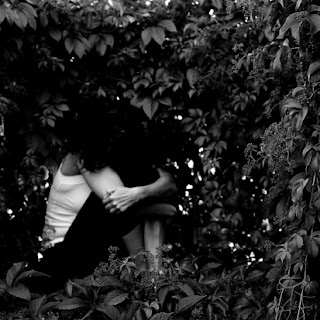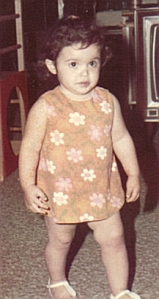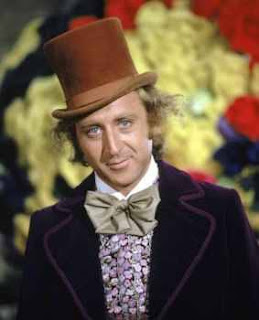Grace Under Fire: Merriman Smith and JFK's Assassination
By William R. Levesque, Times Staff Writer
Here's what it took to break the news of the Kennedy assassination quickly and correctly, to get the news out in minutes to last for the ages.
A friend once joked that I owed my reporting career to Lee Harvey Oswald. But I'd rather think I owe it to Merriman Smith.
I was in middle school when I first became fascinated with the assassination of President John F. Kennedy. I'd spend hours devouring books like William Manchester's The Death of a President or Jim Bishop's The Day Kennedy Was Shot the way other kids read the comics.
What drew me to the story of that tragic event 46 years ago today had less to do with the macabre spectacle by the grassy knoll than it did with a fascination for the news business.
The books were my introduction to Smith.
Smith, who died in 1970, was the swarthy, pugnacious White House correspondent for United Press International, the senior reporter on the beat when Kennedy's motorcade left Love Field for the 45-minute ride through the cheering throngs of Dallas.
As reporters today increasingly work at breakneck speed to get the news on the Web before any of a thousand faceless competitors, Smith's excellence that day is worth remembering.
Former UPI journalist Patrick J. Sloyan wrote in 1997, "The day Kennedy was killed required perception, accuracy, speed and judgment that Smith displayed while relishing the fire of competition. Smith did not merely beat (Associated Press reporter) Jack Bell, the opposition. That day in Dallas, Merriman Smith burned the Associated Press to the waterline."
Smith sat in a special phone company radio car a few hundred feet behind JFK's midnight blue limousine in the Dallas motorcade. The wire reporters were suppose to rotate the seat beside the bulky phone, but it was Smith's habit to take it every time - just in case.
Smith sometimes took target practice at the gun range used by Secret Service agents, so when shots rang out, he immediately identified the sharp reports as gunfire.
Smith saw the confusion and panic in the crowd as the presidential car sped off.
Still, it's difficult for someone who isn't a reporter to understand the danger of Smith's next calculated risk. He hadn't seen the impact of the bullets. He couldn't know JFK was wounded. But Smith picked up the radio phone and called in a bulletin to UPI.
If he got it wrong, it might end his career.
DALLAS. NOV. 22 (UPI) - THREE SHOTS WERE FIRED AT PRESIDENT KENNEDY'S MOTORCADE IN DOWNTOWN DALLAS.
It wasn't recklessness but a sharp instinct that led Smith to call in those words. In newsrooms around the nation, five bells at the UPI ticker announced momentous news. It was the first word of the shooting to the world.
Just four minutes had passed since the final shot.
Smith, pretending that the UPI operator could not hear him, asked that his words be read back to him. He knew every second he kept the phone away from the AP reporter extended his scoop. The AP's Jack Bell tried to pull the phone away, punching Smith's back.
When the car stopped at Parkland Hospital, Smith threw the phone to Bell. At that moment, the line went dead.
Smith ran to the presidential limousine and looked down at the carnage inside. Jacqueline Kennedy held her husband's shattered head on her lap. Smith asked Secret Service agent Clint Hill about JFK's condition.
"He's dead, Smitty."
Smith ran into the hospital for a phone. Within 11 minutes of the assassination, he had dictated a coherent 500-word dispatch whose accuracy withstood the test of time.
"The wire service war of seconds had grown to minutes, and the AP was falling farther and farther behind," Manchester wrote in The Death of a President.
Realizing the news was now with Lyndon Johnson, and not with the dead president, Smith bummed a ride to Air Force One from a cop and raced to the airport. He made it in time to witness LBJ's swearing in.
The AP reporter was still at Parkland.
I fell in love with the story of Smith's work and the idea that a journalist could have a front-row seat to history. The work was exciting, important, worthy. Smith won a Pulitzer Prize.
Thus infected, I became a journalist. I joined UPI myself in 1987, perhaps trying to recreate that boyhood fascination with the Big Story. Of course, I would never cover anything as big as JFK's death.
But I didn't need to. Like thousands of other reporters covering nothing more riveting than school boards or local police or the courts, I found a calling.
The news business is now pummeled by lost profits, layoffs and reduced salaries. Like many, I struggle to remain upbeat about a future in journalism.
I often think of Smith in these hard times. He reminds me about why I'm still enthralled by the limitless possibilities of the next day's newspaper, by the notion that a routine day can be transformed in an instant.
And there is comfort knowing it will be a reporter who brings clarity to chaos.
William R. Levesque, born four months before JFK's assassination, can be reached at levesque@sptimes.com or (813) 226-3432.
Parts of this commentary are based on Patrick J. Sloyan's May 1997 story in the American Journalism Review, which can be viewed at
http://www.arlingtoncemetery.net/albertme.htm.
I was in middle school when I first became fascinated with the assassination of President John F. Kennedy. I'd spend hours devouring books like William Manchester's The Death of a President or Jim Bishop's The Day Kennedy Was Shot the way other kids read the comics.
What drew me to the story of that tragic event 46 years ago today had less to do with the macabre spectacle by the grassy knoll than it did with a fascination for the news business.
The books were my introduction to Smith.
Smith, who died in 1970, was the swarthy, pugnacious White House correspondent for United Press International, the senior reporter on the beat when Kennedy's motorcade left Love Field for the 45-minute ride through the cheering throngs of Dallas.
As reporters today increasingly work at breakneck speed to get the news on the Web before any of a thousand faceless competitors, Smith's excellence that day is worth remembering.
Former UPI journalist Patrick J. Sloyan wrote in 1997, "The day Kennedy was killed required perception, accuracy, speed and judgment that Smith displayed while relishing the fire of competition. Smith did not merely beat (Associated Press reporter) Jack Bell, the opposition. That day in Dallas, Merriman Smith burned the Associated Press to the waterline."
Smith sat in a special phone company radio car a few hundred feet behind JFK's midnight blue limousine in the Dallas motorcade. The wire reporters were suppose to rotate the seat beside the bulky phone, but it was Smith's habit to take it every time - just in case.
Smith sometimes took target practice at the gun range used by Secret Service agents, so when shots rang out, he immediately identified the sharp reports as gunfire.
Smith saw the confusion and panic in the crowd as the presidential car sped off.
Still, it's difficult for someone who isn't a reporter to understand the danger of Smith's next calculated risk. He hadn't seen the impact of the bullets. He couldn't know JFK was wounded. But Smith picked up the radio phone and called in a bulletin to UPI.
If he got it wrong, it might end his career.
DALLAS. NOV. 22 (UPI) - THREE SHOTS WERE FIRED AT PRESIDENT KENNEDY'S MOTORCADE IN DOWNTOWN DALLAS.
It wasn't recklessness but a sharp instinct that led Smith to call in those words. In newsrooms around the nation, five bells at the UPI ticker announced momentous news. It was the first word of the shooting to the world.
Just four minutes had passed since the final shot.
Smith, pretending that the UPI operator could not hear him, asked that his words be read back to him. He knew every second he kept the phone away from the AP reporter extended his scoop. The AP's Jack Bell tried to pull the phone away, punching Smith's back.
When the car stopped at Parkland Hospital, Smith threw the phone to Bell. At that moment, the line went dead.
Smith ran to the presidential limousine and looked down at the carnage inside. Jacqueline Kennedy held her husband's shattered head on her lap. Smith asked Secret Service agent Clint Hill about JFK's condition.
"He's dead, Smitty."
Smith ran into the hospital for a phone. Within 11 minutes of the assassination, he had dictated a coherent 500-word dispatch whose accuracy withstood the test of time.
"The wire service war of seconds had grown to minutes, and the AP was falling farther and farther behind," Manchester wrote in The Death of a President.
Realizing the news was now with Lyndon Johnson, and not with the dead president, Smith bummed a ride to Air Force One from a cop and raced to the airport. He made it in time to witness LBJ's swearing in.
The AP reporter was still at Parkland.
I fell in love with the story of Smith's work and the idea that a journalist could have a front-row seat to history. The work was exciting, important, worthy. Smith won a Pulitzer Prize.
Thus infected, I became a journalist. I joined UPI myself in 1987, perhaps trying to recreate that boyhood fascination with the Big Story. Of course, I would never cover anything as big as JFK's death.
But I didn't need to. Like thousands of other reporters covering nothing more riveting than school boards or local police or the courts, I found a calling.
The news business is now pummeled by lost profits, layoffs and reduced salaries. Like many, I struggle to remain upbeat about a future in journalism.
I often think of Smith in these hard times. He reminds me about why I'm still enthralled by the limitless possibilities of the next day's newspaper, by the notion that a routine day can be transformed in an instant.
And there is comfort knowing it will be a reporter who brings clarity to chaos.
William R. Levesque, born four months before JFK's assassination, can be reached at levesque@sptimes.com or (813) 226-3432.
Parts of this commentary are based on Patrick J. Sloyan's May 1997 story in the American Journalism Review, which can be viewed at
http://www.arlingtoncemetery.net/albertme.htm.










